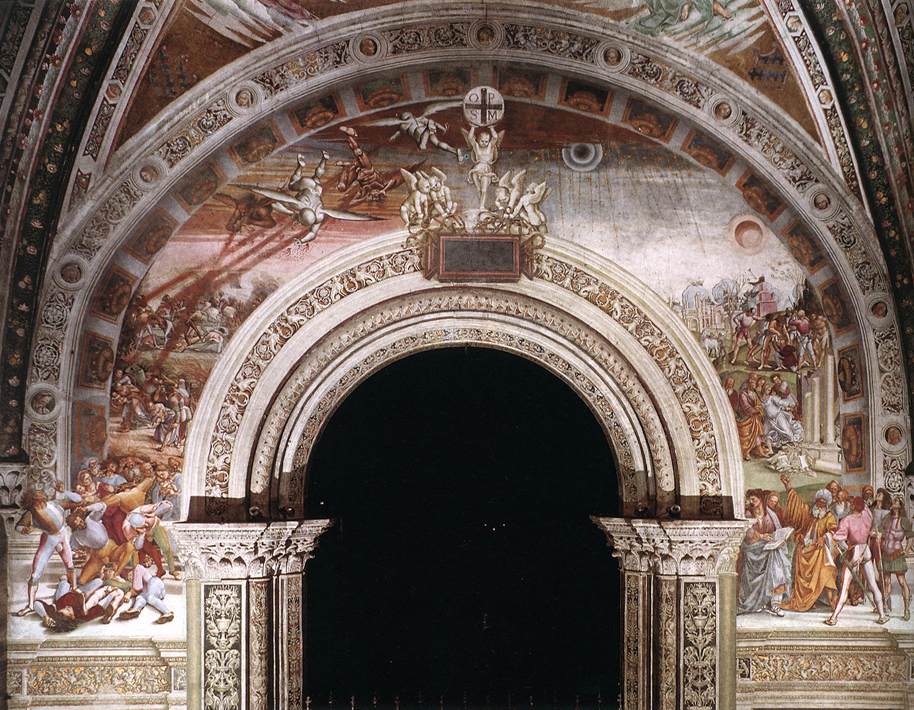Description
Artist Luca Signorelli's Apocalypse painting is an Italian Renaissance masterpiece that has fascinated viewers for centuries. Standing 455cm tall, the painting is one of the largest of its time and features a complex and detailed composition that reflects Signorelli's artistic style.
The painting is divided into several sections that represent different scenes from the Apocalypse, such as the fall of Babylon, the fight between the Archangel Michael and the Dragon, and the resurrection of the dead. Each section is packed with detail and symbolism, making the painting an intriguing and enigmatic work of art.
The use of color in the painting is impressive, with rich, vibrant tones creating an exciting and dramatic effect. Reds, yellows, and golds are used to represent fire and destruction, while blues and greens are used to represent tranquility and hope.
The history of the painting is interesting in itself, as Signorelli is known to have worked on it for several years and it was commissioned by the convent of San Francesco in Arezzo, Italy. The painting is believed to have been completed around 1498 and has undergone numerous restorations and repairs over the years.
Although the painting is widely known and appreciated, there are some lesser-known aspects about it that are just as fascinating. For example, Signorelli is known to have used his own image as a model for one of the characters in the painting, suggesting that he had great confidence in his ability to represent the human figure.
In short, Luca Signorelli's painting Apocalypse is an Italian Renaissance masterpiece that is fascinating as much for its size and composition as for its use of color and rich history. It is a work of art that continues to captivate viewers and continues to be the object of study and admiration.

